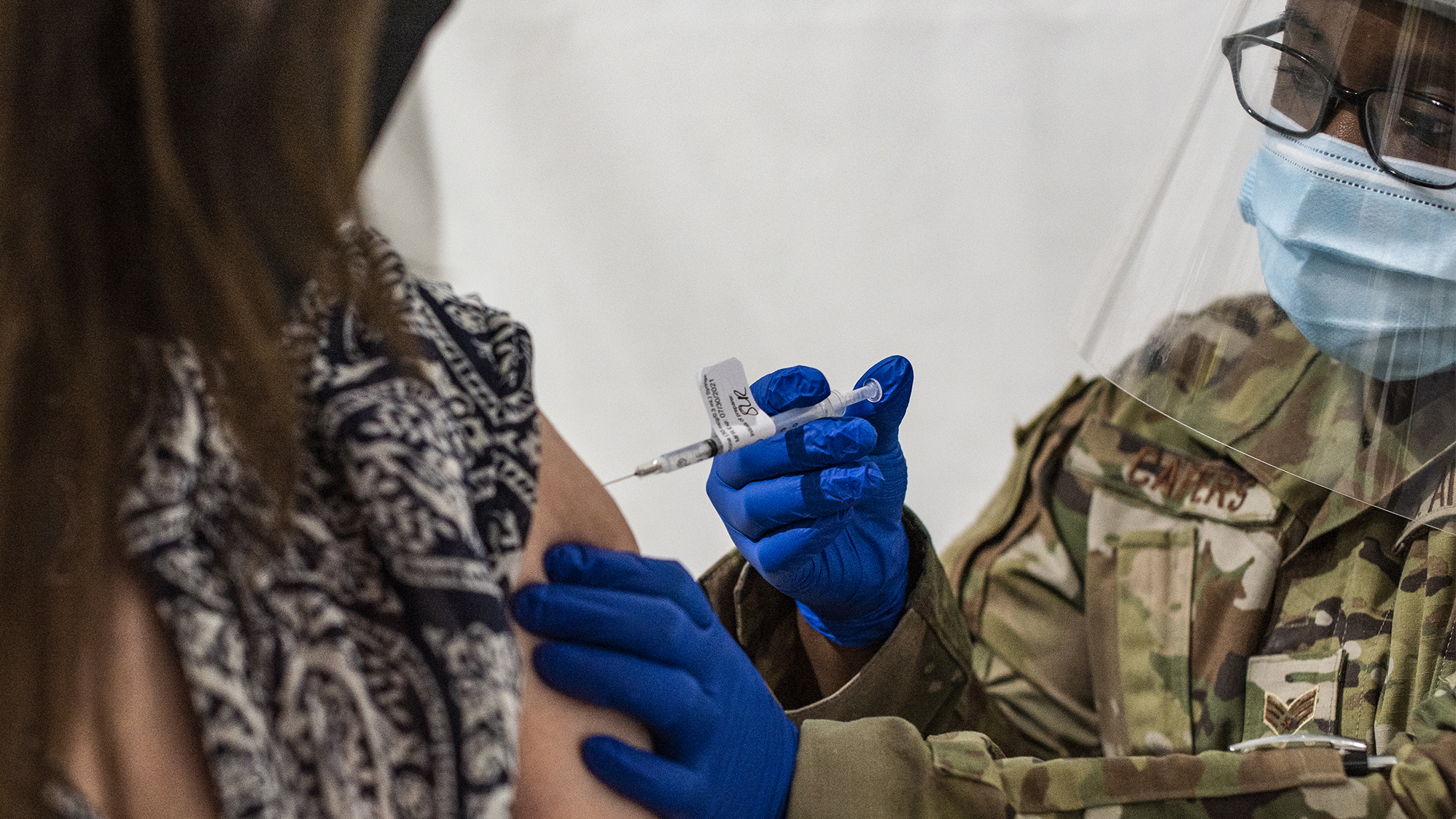The University of Maryland’s GSG passed a resolution Wednesday pushing for accommodations for graduate students experiencing COVID-19 vaccination side effects.
The Graduate Student Government’s resolution asks the university to provide a statement supporting graduate students with vaccination symptoms and that instructors grant extensions on assignments during the week after vaccination.
Aerospace engineering representative Jacek Garbulinski authored the resolution, which was co-sponsored by five members of the assembly.
Garbulinski started writing the resolution after experiencing intense side effects following his own COVID-19 vaccination. For two days after his vaccination, Garbulinski had a fever and headache, he said. He explained he had to take some time to recover in the following days.
After talking to others who had been vaccinated, he realized his experience wasn’t unique. With mass vaccination sites now open to everyone over the age of 16, Garbulinski explained, there would be more students facing side effects.
[GSG calls on UMD to provide grad employees with documentation of COVID vaccine eligibility]
He didn’t want students to have to squeeze a vaccination appointment between various assignments and finals. Garbulinski wants vaccination to take priority over assignments and exams.
“We don’t want at any point, especially through final exams or as you’re approaching the end of the semester some people [to say] ‘I think I could delay getting vaccinated so as not to feel these side effects, so that that doesn’t mess up with the academic calendar,’” said Aldo Gutiérrez Mendieta, one of the bill’s co-sponsors and an agriculture and resource economics representative.
While sick leave is included in university policies, Gutiérrez Mendieta said, vaccination side effects aren’t necessarily covered in this leave. This policy would simply be an extension of the flexibility the university has encouraged professors to implement amid the pandemic, said Tamara Allard, psychology representative and co-sponsor.
[At Maryland hearing, USM grad students once again fight for collective bargaining rights]
Simon Sheaff, vice president of legislative affairs for the body, noted that in a conversation with the graduate school deans, they had not been against the resolution.
“It should already be taken care of by existing illness policies,” Sheaff said. “But [the deans are] not opposed to communicating the idea that this does count under those policies.”
While the text of the bill mostly considers accommodations in an instructor-student relationship, Allard also hopes assistantships will have similar accommodations.
Allard said she was supposed to work in a lab the day she was vaccinated. She said she informed her department of her appointment during a meeting, and her adviser said it would be better if someone else collected the data that day. She wants this to be possible for anyone who is getting vaccinated.
“I think that we should just empower faculty members to have a clear answer, be like, ‘OK, I understand, and this is part of COVID,’” Allard said. “All we’re asking is that people are understanding of the unique circumstances that we’re going to find ourselves in.”
Staff writer Clara Niel contributed to this report.



